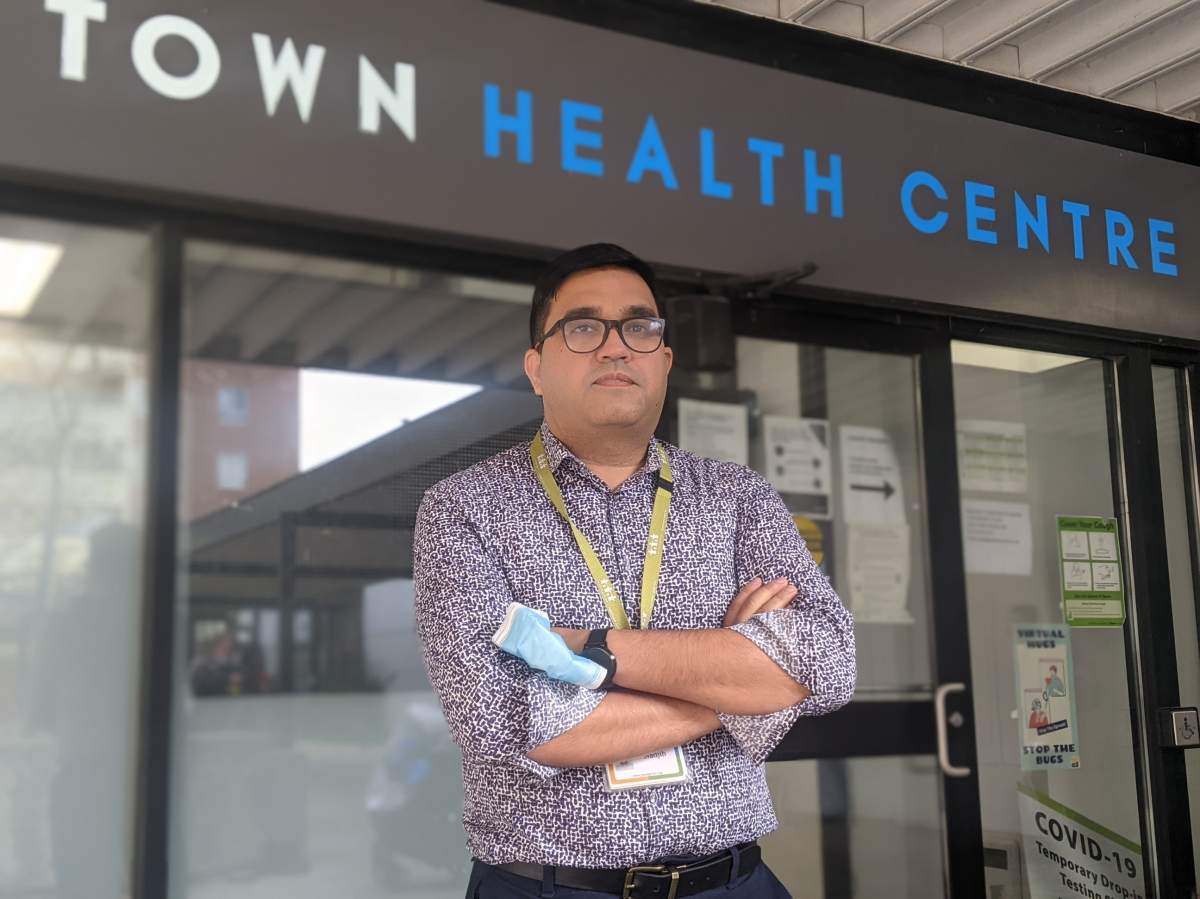It took a lot of time and reflection for Daniel Smith to get comfortable with the idea of getting vaccinated against COVID-19.

Standing outside Victoria Park subway station, the East Toronto resident shared his thoughts with Global News.
“I definitely want to travel and if you can’t go anywhere, and you can’t do anything without being vaccinated, then it’s something I’m deeply taking into consideration,” he explained.
Taylor-Massey, which sits on the border of East York and Scarborough, currently has the lowest vaccination rate in Toronto, according to data from the City.
The numbers, which are updated twice weekly, show 64 per cent of eligible residents there have been fully immunized.
“I think it is the right thing to do, however, I feel that being pressured into something is another thing. And I think a lot of people in this community are feeling that it’s a pressure thing,” Smith said.
City-wide, the vaccination rate sits at around 84 per cent.
Other parts of Toronto with lower vaccination rates include Kingsview Village – The Westway with 69 per cent, Elms – Old Rexdale, Etobicoke West Mall, and Englemount – Lawrence with 70 per cent respectively.
Nadjib Alamyar is the manager of newcomer wellness at WoodGreen Community Services, which has been working closely with health partners in the area.
“For us, the approach has been to really connect with the community and win their trust,” he told Global News.
“In the past three months, we’ve seen 17 per cent uptake in the first dose, and 25 per cent uptake in the second dose.”
Earlier this year, they dispatched teams to go door-to-door to speak to residents. So far, he said they have knocked on over 6,000 doors.

Get weekly health news
They have teams known as “ambassadors,” who go twice a week, into the lobbies of apartment buildings. They distribute masks, sanitizer, disinfectant wipes, and offer information.
The ambassadors are recruited from area buildings, and speak at least a dozen languages, Alamyar revealed.
He added that trust, accessibility and being able to respond to local needs have been crucial.
“Sometimes it can be that language barriers can prevent them from having the right information,” he pointed out.
“There can be issues in terms of their jobs, where they can’t take time off between two jobs. Other reasons can be that the vaccines are not probably available for them to get in the right places.”
Global News reached out to Ward 19, Beaches-East York Councillor Brad Bradford. He said that while the data demonstrates there is still a long way to go, efforts are ongoing to address vaccination rates.
He said it’s a collaborative effort between the City, public health, and community partners.
“We started with mass clinics. That was the approach from the city at the beginning. And now, we are in a much more granular and targeted approach,” Bradford continued.
Areas in the city with the highest vaccination rates include Kennedy Park and Centennial Scarborough with 88 per cent respectively, and York University Heights with 87 per cent.
Global News asked Toronto’s associate medical officer of health about low vaccination rates in some neighbourhoods, and the reasons behind the apparent reluctance.
Dr. Vinita Dubey pointed to hesitancy, as opposed to a firm refusal to get the shot.
“Some are still choosing to wait because they want to see how it goes,” she told Global News.
Dubey also said that while many of the neighbourhoods that have lower vaccination rates have been harder hit by COVID-19, it’s not because the virus is more contagious there.
There are a myriad of issues contributing to vaccination rates.
“It’s really about the social determinants of health, being a newcomer, being from a racialized community, living in low income,” she said.
“Those are all reasons that contribute to why COVID rates are higher, and why vaccination rates may be lower. So some of it, in the long term, will be about addressing those bigger, systemic issues.”









Comments